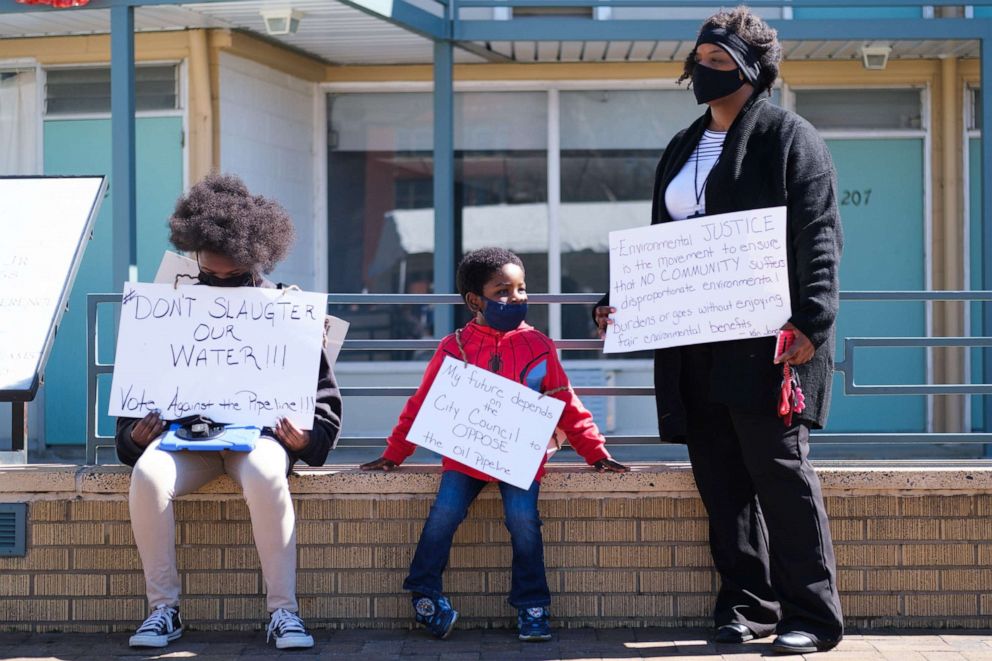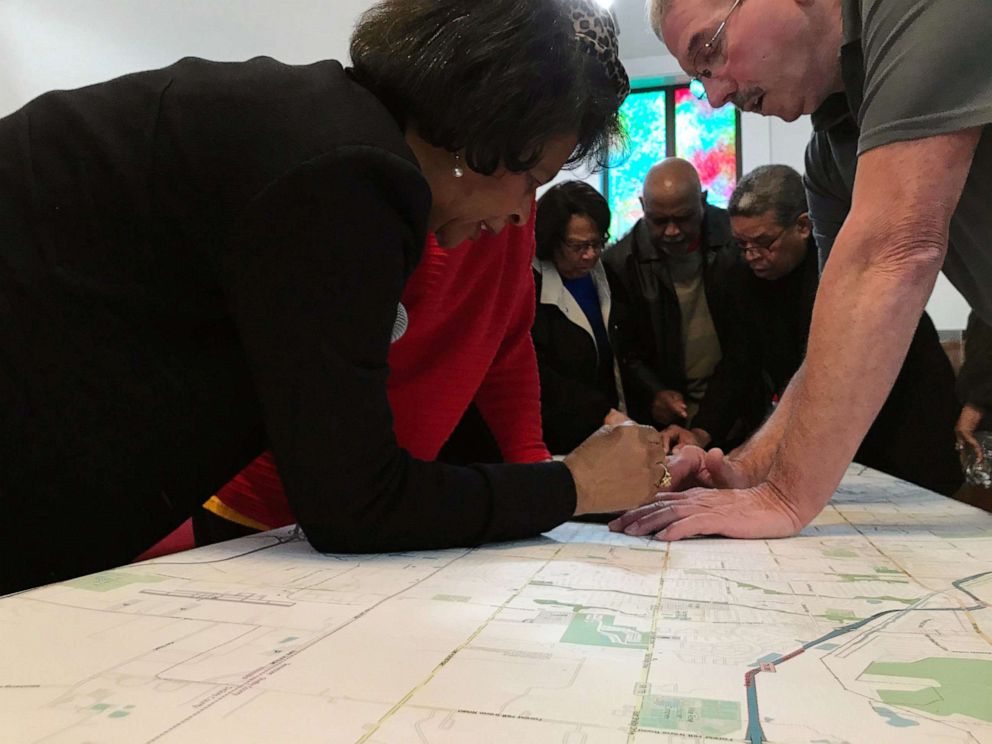Memphis community celebrates after crude oil pipeline proposal scrapped
The proposed route faced allegations of "environmental racism."
They were called the "path of least resistance" by energy giants proposing a new crude oil pipeline. Now, after months of activism and resistance, a Black community in Memphis is celebrating the announcement that construction of the pipeline has been called off.
"This is a significant victory for our community, and for all people who have been pushed to the margins of our society," Justin J. Pearson, a local resident and one of the co-founders of the grassroots group Memphis Community Against the Pipeline (MCAP), told ABC News on Tuesday, adding that the community responded to the news by erupting in "jubilation."
"It's an extraordinary feat for people who were called the path of least resistance to have pushed back and beat back two billion-dollar crude oil pipeline companies," he added. "You can walk through the neighborhood and see all these signs and the spirit that endures, showing that we really are the path of resilience."

Plans for the Byhalia Connection pipeline, a joint venture from Plains All American and Valero Energy, were officially called off last Friday. The proposed 49-mile crude oil conduit faced mounting community opposition, and lawmakers and celebrities also added their voices to the resistance movement.
Brad Leone, the director of communications at Plains All American, said in a statement posted to the Byhalia Connection's website that the company was no longer pursuing construction of the project "primarily due to lower U.S. oil production resulting from the COVID-19 pandemic."
"We value the relationships we’ve built through the development of this project, and appreciate those that supported the project and would have shared in its ongoing benefits including our customers, communities, energy consumers, landowners, area contractors and suppliers," the statement added.

The pipeline initially threatened to cut through predominantly Black communities that have historical significance to those who live there -- such as Boxtown, an area in Southwest Memphis that got its name after formerly enslaved people built their homes there out of train boxcars.
A representative of the pipeline company initially told the community the route was chosen because it was the "path of least resistance." A company spokesperson later clarified to ABC News that, "What should have been said is that we looked for the path with the fewest collective impacts."
Still, community members protesting the project said they were tired of bearing the brunt of industrial projects and potential pollutants in their backyard.
Former Vice President Al Gore, who attended anti-pipeline rallies, reacted to the cancellation news on Twitter. Gore congratulated MCAP and the community, "who made their voices heard to stop this reckless, racist ripoff!"
Actor Danny Glover, of the "Lethal Weapon" franchise, also sent well-wishes on Twitter to the community, calling the news a "huge win."
The Southern Environmental Law Center, which represented MCAP and other community organizations as they fought state and federal permits for the project applauded the news as "a victory for the people of Southwest Memphis, for the city’s drinking water, and perhaps most monumentally, it is a triumph for environmental justice," according to a statement from Amanda Garcia, the group's Tennessee office director.
Pearson, who was at the forefront of the pipeline resistance movement over the past several months, said the battles for environmental justice for all are not over. Still, he said he hopes others can see this victory as inspiration to fight for what they believe in.
"There's no power more powerful than people power," Pearson told ABC News. "Even when we don't have as much money or clout as these billion-dollar businesses, we have our bodies, we have our voices, we have our time. We have our spirits, which cannot be broken."




